TV Hosts America Loved in the ’60s & ’70s
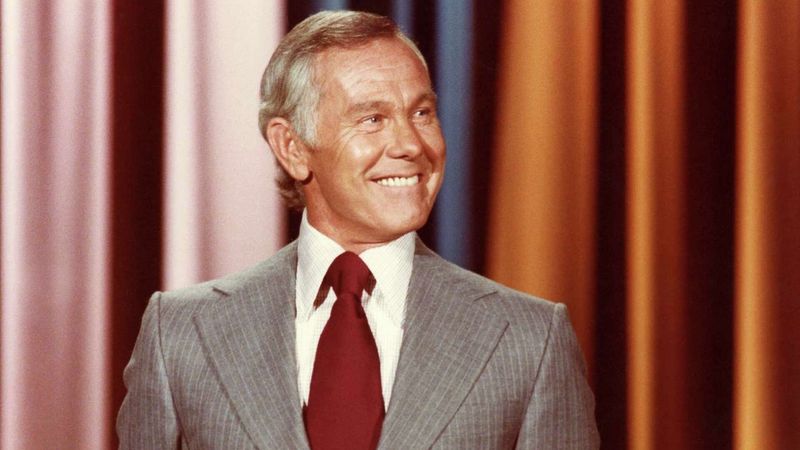
Television changed forever during the ’60s and ’70s, bringing charismatic hosts right into our living rooms. These talented personalities became trusted friends who entertained us nightly, shaped our cultural conversations, and created unforgettable TV moments. From late-night laughs to daytime game shows, these 13 iconic hosts captured America’s hearts during a golden age of television.
1. Fred Rogers
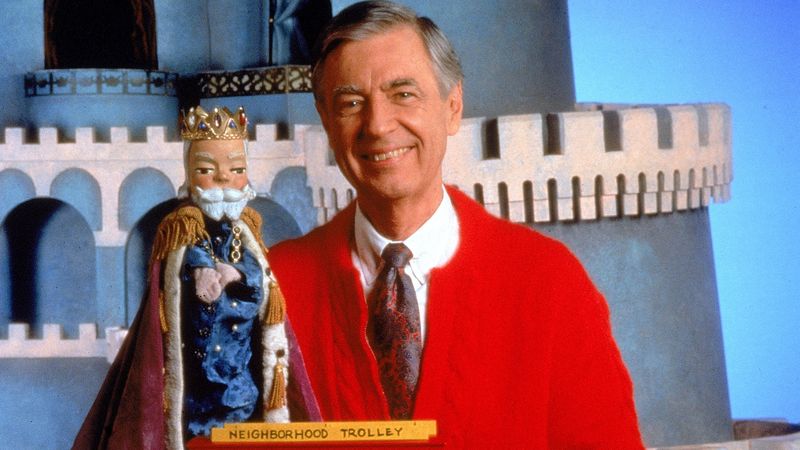
Fred Rogers wasn’t just a TV host—he was America’s most trusted friend. Opening each episode by changing into his cardigan and sneakers, this ordained minister created a safe space where children felt truly seen and valued.
Mr. Rogers tackled tough topics others avoided, from divorce to death, always with honesty and respect for his young viewers’ feelings. His soft-spoken delivery and direct camera address made each child feel he was speaking just to them, creating an intimate connection rare in television.
Behind the scenes, Rogers wrote every script and song, composed all the music, and voiced many puppet characters. His commitment to children’s emotional well-being wasn’t just a show—it was his life’s mission that changed childhood development forever.
2. Johnny Carson
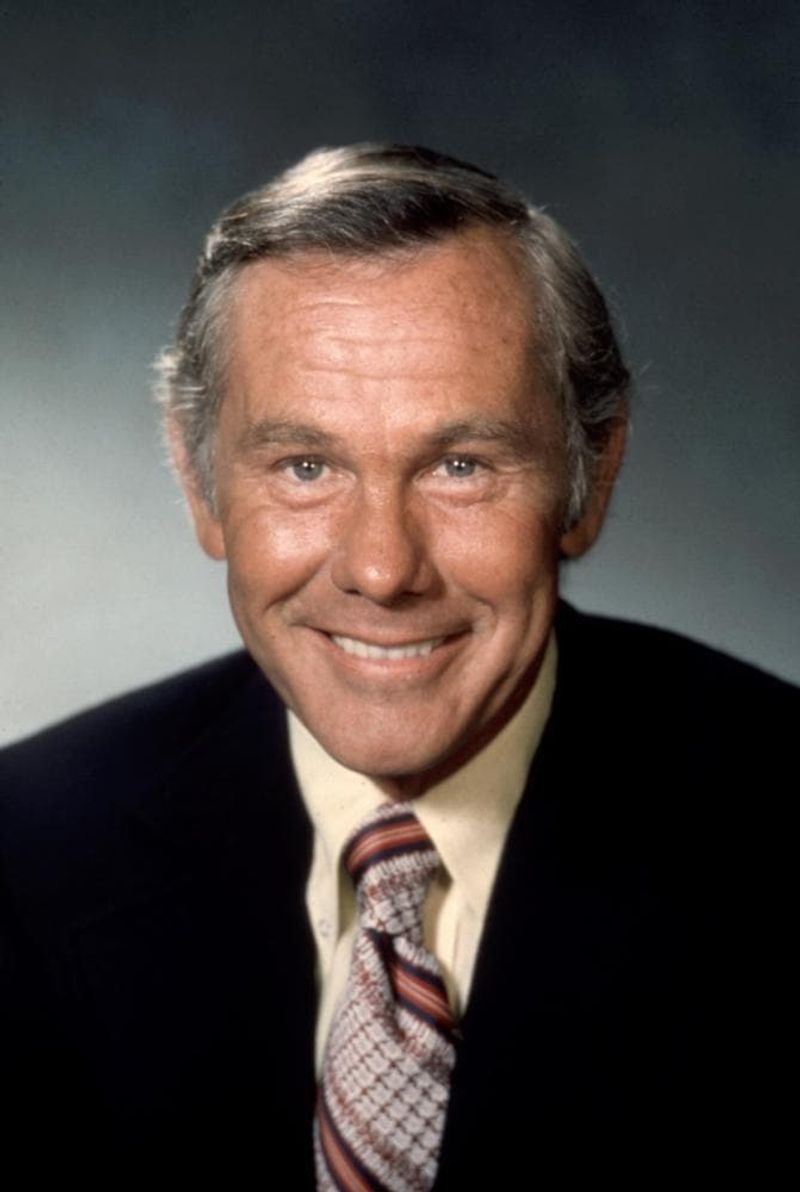
Witty, charming, and impossibly smooth, Johnny Carson transformed The Tonight Show into must-see TV starting in 1962. His iconic golf swing, perfectly timed eyebrow raises, and quick comebacks made him a nightly fixture in American homes for nearly 30 years.
Carson’s genius lay in making both celebrities and everyday folks feel equally comfortable. Whether bantering with his sidekick Ed McMahon or reacting to animal handlers bringing exotic creatures onto his set, his genuine reactions created magical television moments.
His influence extended beyond entertainment—Carson’s approval could launch a comedian’s career overnight. The king of late-night television averaged 15 million viewers nightly, proving his unmatched ability to connect with audiences across America.
3. Merv Griffin
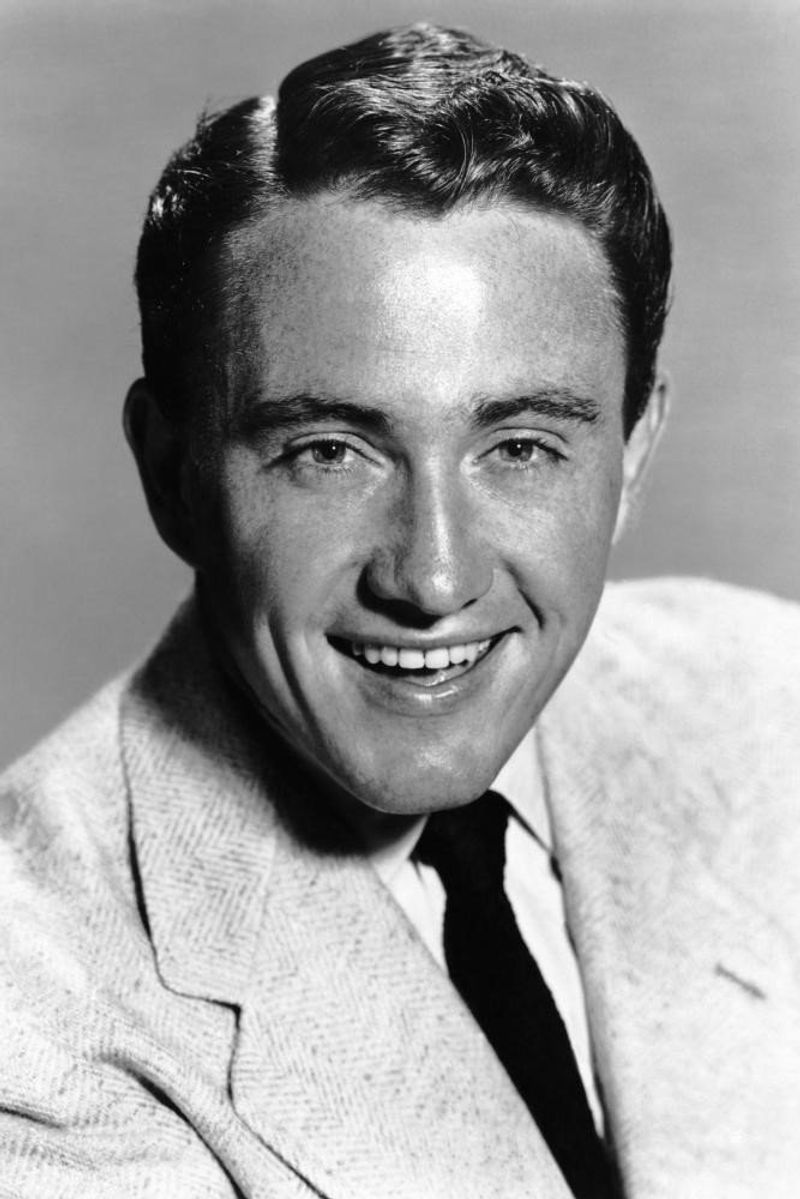
Before he created Wheel of Fortune and Jeopardy!, Merv Griffin captivated audiences with his remarkable interviewing style. Unlike many hosts who dominated conversations, Griffin had a rare gift for listening, drawing out fascinating stories from his guests with genuine curiosity.
His syndicated talk show became famous for booking controversial figures alongside Hollywood royalty. Griffin wasn’t afraid to discuss politics, sexuality, and social issues when other shows played it safe. This bold approach sometimes got his show canceled on certain networks, but audiences always followed him.
A talented singer before his hosting career, Griffin often joined musical guests in impromptu performances. His entrepreneurial spirit and warm personality made him a television pioneer whose influence extended far beyond his talk show empire.
4. Phil Donahue
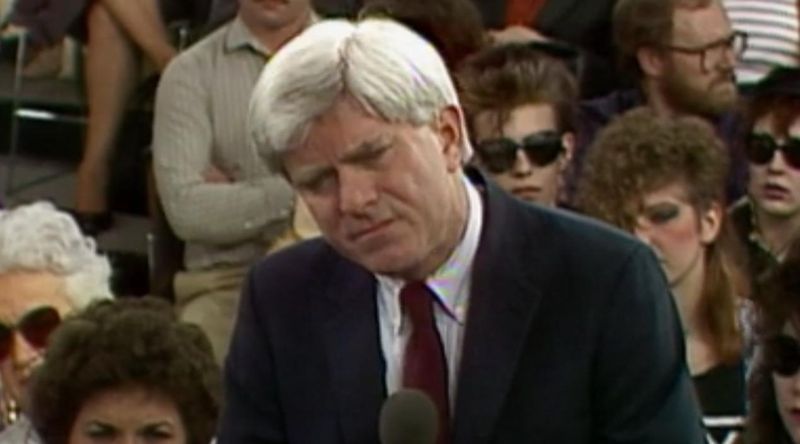
“The audience is the star of the show.” This revolutionary concept defined Phil Donahue’s approach when he launched his groundbreaking talk show in 1967. With microphone in hand, he transformed television by turning everyday viewers into active participants rather than passive observers.
Donahue tackled taboo subjects like feminism decades before they became mainstream discussion topics. His silver-haired, energetic presence became synonymous with thoughtful discourse during daytime television’s most transformative era.
What separated him from imitators was his genuine intellectual curiosity. Rather than seeking sensationalism, Donahue wanted understanding. His pioneering format created the blueprint for audience participation shows and influenced every talk show host who followed, from Oprah to Ellen.
5. Allen Ludden
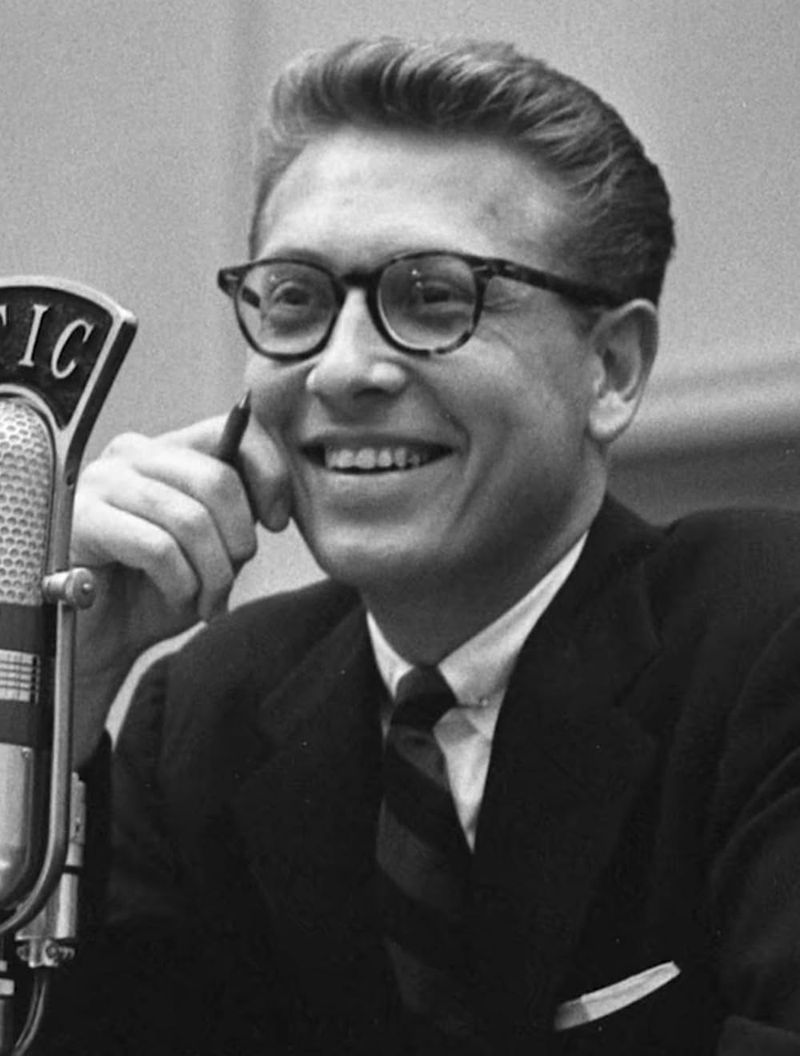
Smart, encouraging, and perpetually bow-tied, Allen Ludden turned word association into prime-time entertainment as host of Password. His genuine excitement when contestants succeeded made viewers feel they were playing right alongside the celebrities and everyday contestants on screen.
Married to beloved actress Betty White (whom he met when she appeared as a Password contestant), Ludden’s real-life romance added to his appeal. Their obvious affection for each other made them one of Hollywood’s most adored couples.
Unlike hosts who relied on gimmicks, Ludden’s authentic enthusiasm for language and wordplay made him perfect for Password’s sophisticated yet accessible format. His legacy as television’s most intellectual game show host inspired generations of word enthusiasts and demonstrated how educational content could be genuinely entertaining.
6. Monty Hall
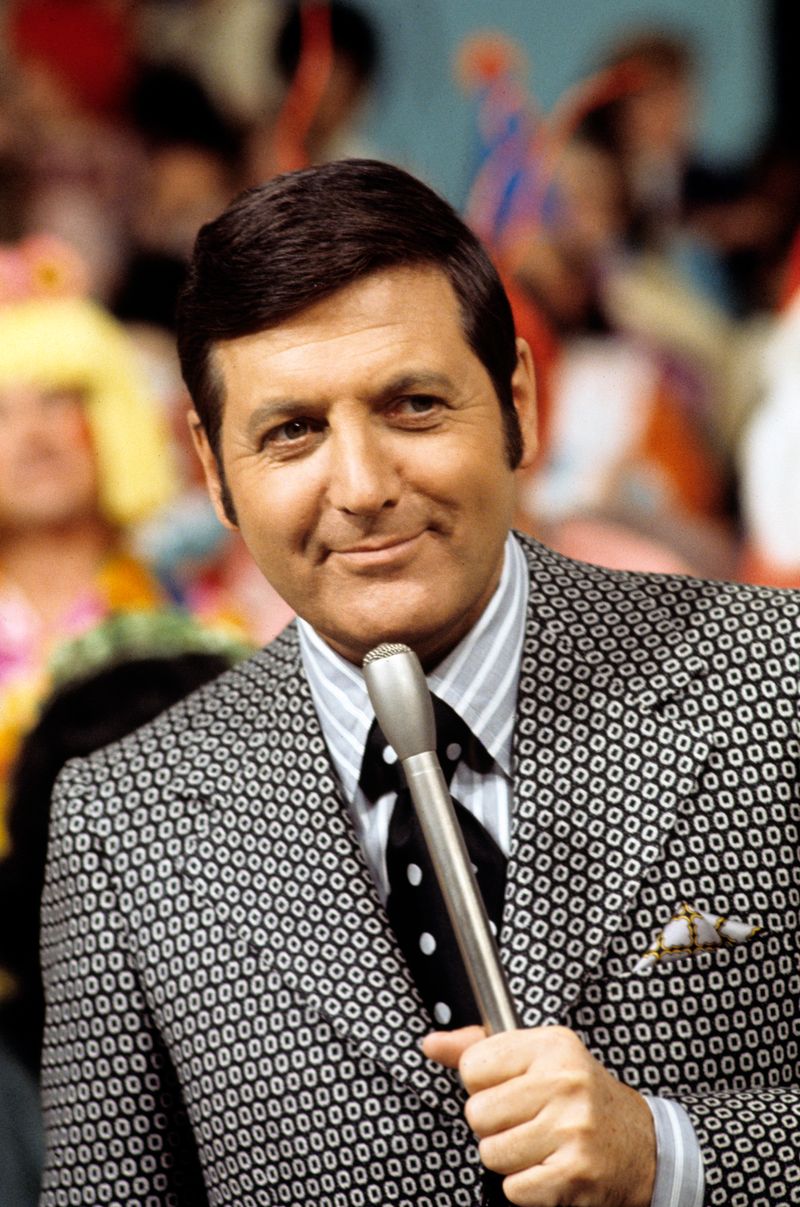
“What’s behind door number three?” This question, posed by the charismatic Monty Hall, created some of television’s most suspenseful moments. Let’s Make a Deal transformed ordinary people in outlandish costumes into decision-makers gambling between the known and unknown.
Hall’s gift was his lightning-fast ability to improvise with unpredictable contestants. When someone dressed as a chicken suddenly laid an egg on stage or a Viking warrior broke into tears after winning a new car, Hall handled it with humor and grace that kept America watching.
Born Monte Halparin in Canada, Hall was more than an entertainer—he was a passionate philanthropist who raised over $1 billion for charity during his lifetime. His trading game concept became so influential that mathematicians still study “The Monty Hall Problem” in probability theory today.
7. Peter Marshall
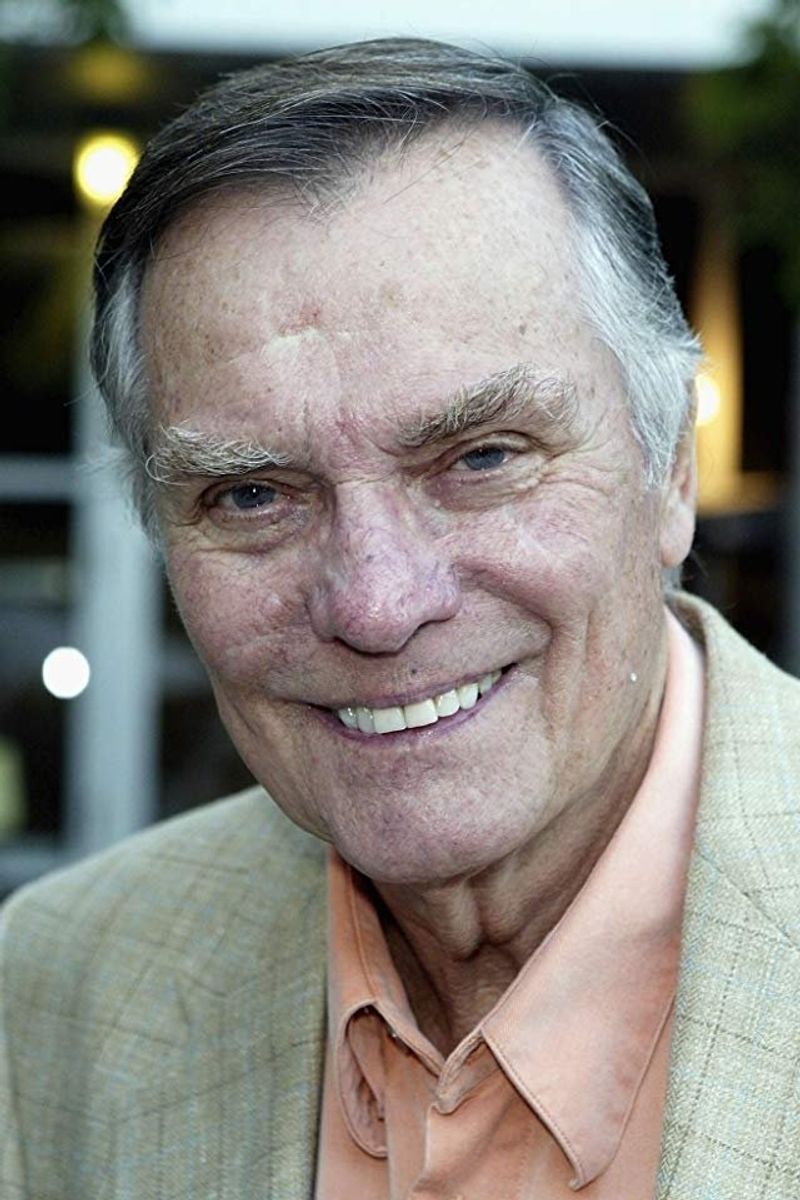
“I’ll take Paul Lynde for the win!” For nine years, Peter Marshall orchestrated the perfect blend of celebrity wit and game show strategy as host of Hollywood Squares. His sophisticated demeanor provided the perfect straight-man counterpoint to the show’s comedy-filled format.
Marshall’s genius lay in his timing and restraint. While stars like Paul Lynde, Rose Marie, and Charley Weaver delivered zingers, Marshall maintained control with a raised eyebrow or perfectly timed comment. His distinctive voice asking “Do you agree or disagree?” became a catchphrase across America.
Before television fame, Marshall performed in musicals and comedy acts with Tommy Noonan. This theatrical background gave him the poise to handle Hollywood Squares’ complex format where he simultaneously served as host, referee, and occasional target of the celebrities’ playful jabs.
8. Ed Sullivan
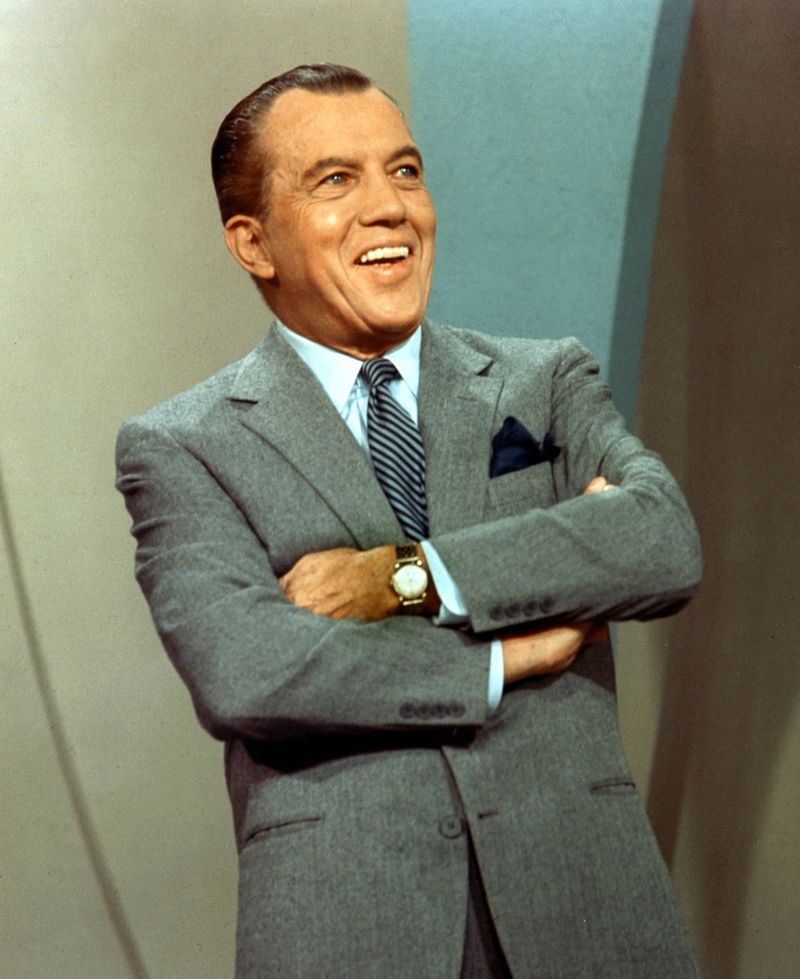
Stiff, awkward, and utterly magnetic—Ed Sullivan defied every rule of television charisma yet became Sunday night’s most powerful cultural gatekeeper. His stone-faced introduction “a really big shew” launched careers and introduced America to acts that changed music history.
Sullivan’s genius wasn’t his personality but his remarkable cultural instinct. He recognized The Beatles’ potential when others dismissed them and gave Elvis Presley his first national television exposure. Beyond music, Sullivan showcased everything from opera singers to plate spinners, creating a true variety show that united generations.
Though his show began in 1948, Sullivan remained culturally relevant through the ’60s until his final broadcast in 1971. His willingness to feature Black performers during segregation made him an unexpected civil rights pioneer, using his platform to showcase talent regardless of race during television’s formative years.
9. Gene Rayburn
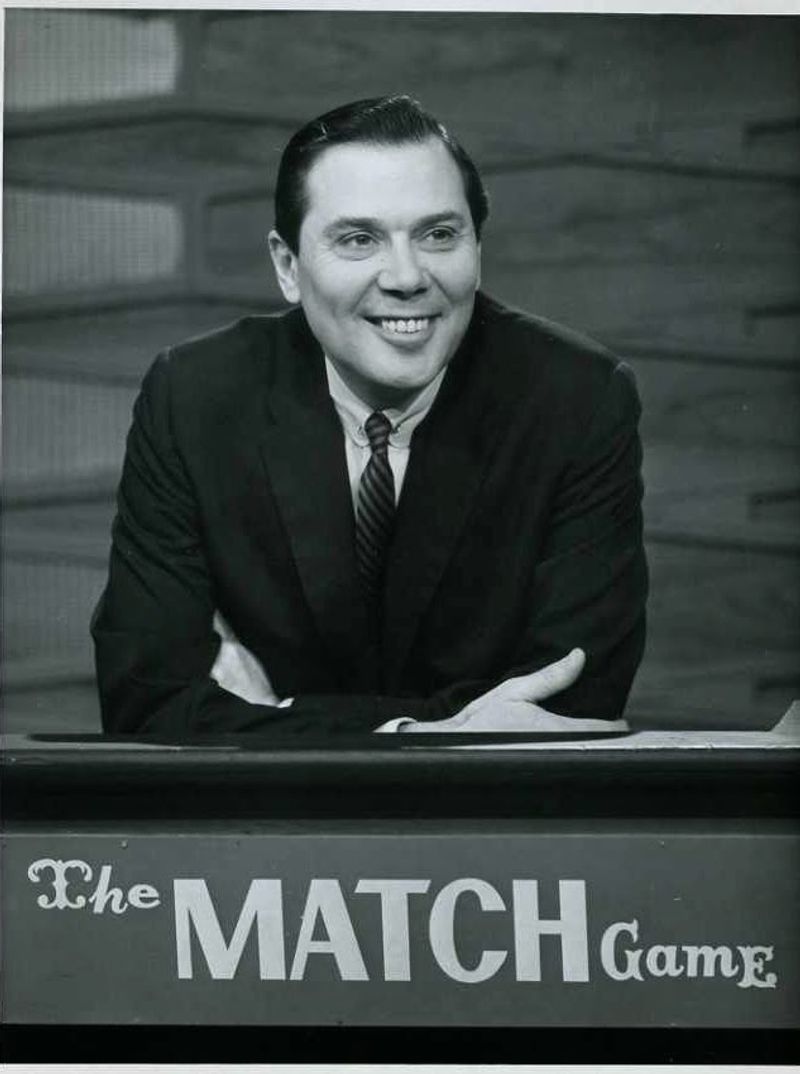
Armed with his comically elongated microphone, Gene Rayburn transformed adult fill-in-the-blank wordplay into daytime television gold. As host of Match Game, his mischievous eyebrows and suggestive delivery turned innocent phrases into double entendres that had America in stitches.
Rayburn’s chemistry with regular panelists like Brett Somers and Charles Nelson Reilly created a cocktail party atmosphere where viewers felt like invited guests. His theatrical reactions to particularly risqué or ridiculous answers became signature moments fans waited for daily.
Originally a radio announcer and TV host since the 1950s, Rayburn found his perfect match with the 1970s revival of Match Game. His background in improvisational comedy made him ideal for handling the show’s unpredictable moments, while his genuine rapport with contestants made everyday players feel like stars alongside the celebrities.
10. Richard Dawson
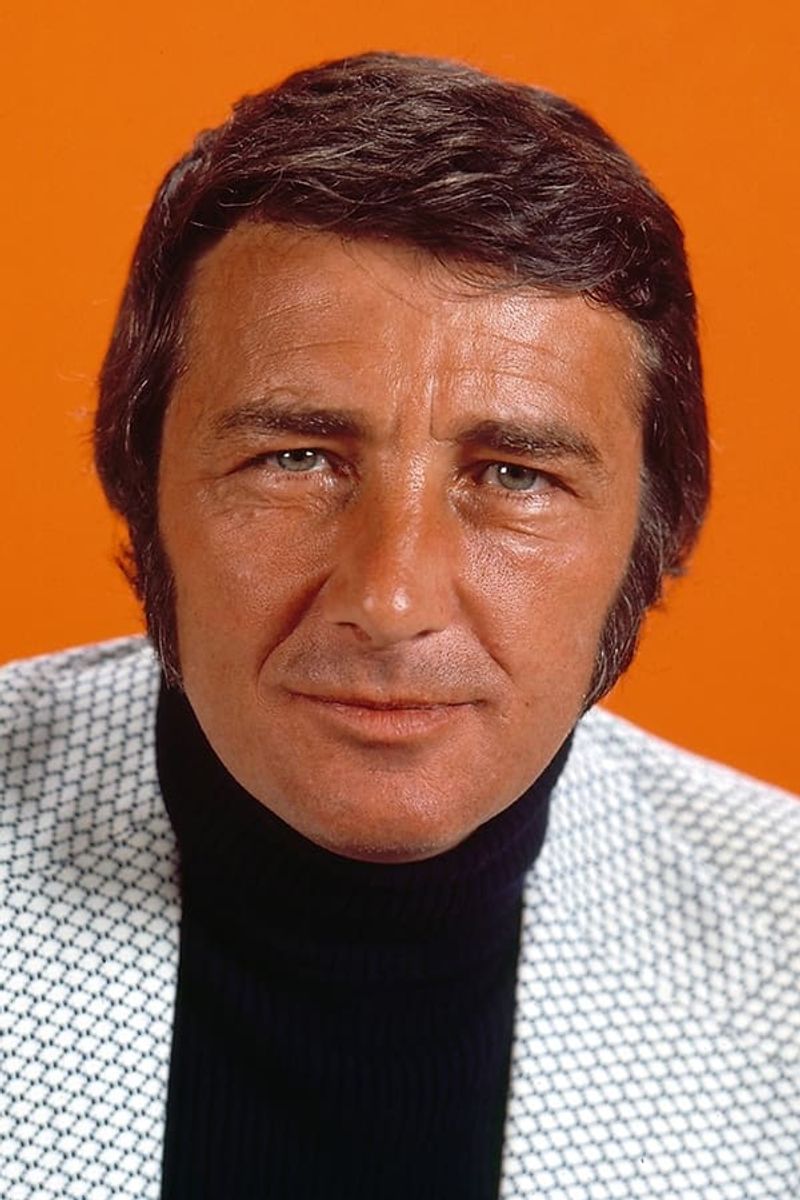
“Survey says!” Before hosting Family Feud, British-born Richard Dawson charmed America as the quick-witted regular on Match Game. His rakish charm and English accent made him the panel’s most popular personality before he landed his own hosting gig.
As the original host of Family Feud starting in 1976, Dawson became famous—and controversial—for kissing female contestants. Estimated to have kissed over 20,000 women on air, he defended the practice as genuine affection and eventually married one contestant he met on the show.
Dawson’s greatest strength was his ability to put nervous contestants at ease with humor and warmth. He memorized contestants’ names and personal details, showing genuine interest in everyday Americans. This authentic connection with players helped Family Feud become the highest-rated game show of its time.
11. Bob Barker
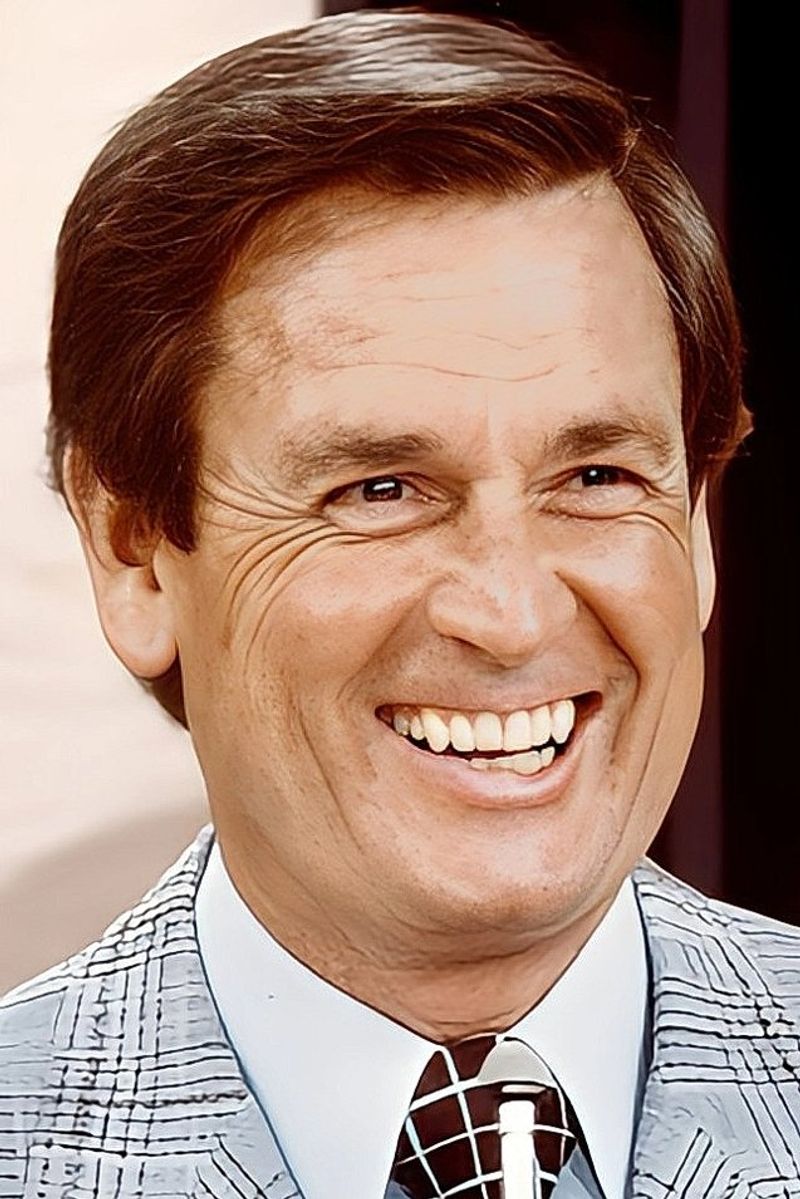
“Come on down!” Though these famous words were actually spoken by announcer Johnny Olson, they’ll forever be associated with the silver-haired master of pricing games, Bob Barker. Taking over The Price Is Right in 1972, Barker’s smooth delivery and quick wit made grocery store prices absolutely thrilling.
His signature skinny microphone became as iconic as his later advocacy for animal rights. Barker’s genuine reactions to contestants’ excitement—whether being tackled in hugs or watching someone win a new car—created authentic television moments that transcended the game show format.
A former radio host, Barker’s broadcasting skills were impeccable, rarely making mistakes despite hosting over 6,000 episodes. His ability to keep the show moving while handling overly enthusiastic contestants made him the gold standard of game show hosts and an American television institution.
12. Captain Kangaroo
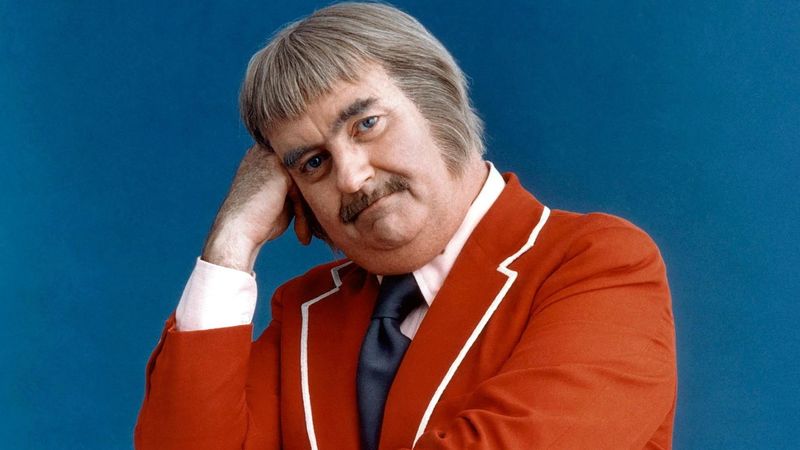
Every weekday morning for nearly 30 years, Bob Keeshan donned his red jacket and distinctive bowl haircut to welcome children into the Treasure House. As Captain Kangaroo, he created a gentle, unhurried world that respected children’s intelligence while nurturing their imagination.
Unlike manic children’s shows, Captain Kangaroo spoke directly to young viewers with calm sincerity. Recurring characters like Mr. Green Jeans, Dancing Bear, and Mr. Moose with his ping-pong ball pranks created a consistent, comforting routine for generations of children.
Before becoming the Captain, Keeshan played Clarabell the Clown on Howdy Doody—a stark contrast to the grandfatherly figure he later embodied. His philosophy that children deserved quality entertainment revolutionized children’s programming. Though competing with flashier shows, Captain Kangaroo remained a beloved morning tradition from 1955 until 1984.
13. Sandy Becker
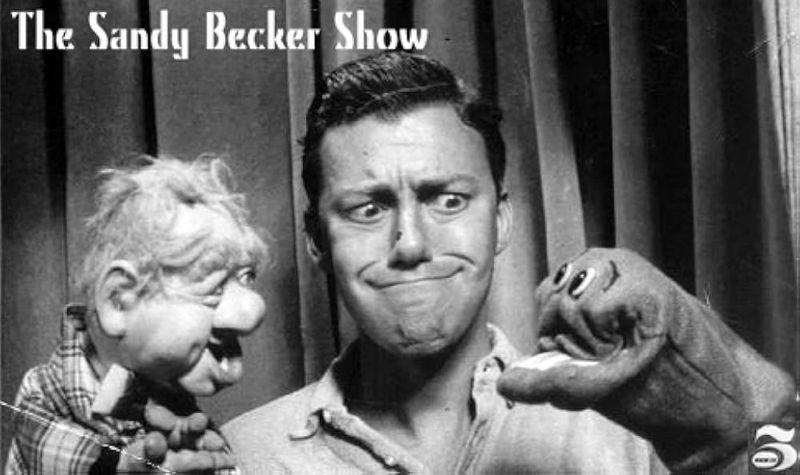
While not nationally known like some hosts, Sandy Becker was nothing short of royalty to children in the New York metropolitan area. His weekday children’s program showcased his remarkable versatility through characters like Hambone, The Big Professor, and Norton Nork—all created and performed by Becker himself.
A master puppeteer and voice artist, Becker respected his young audience’s intelligence. He seamlessly blended entertainment with educational segments decades before this approach became standard. His natural warmth made generations of New York children feel they had a special friend waiting for them after school.
Beyond his own show, Becker was the English-language voice of Gumby and narrated countless commercials. Though his programs ended in 1968, his influence on regional children’s television created a template for local kids’ shows across America throughout the 1970s.

Comments
Loading…